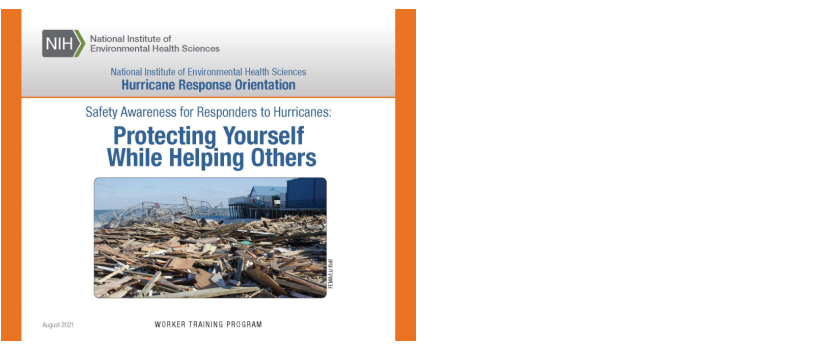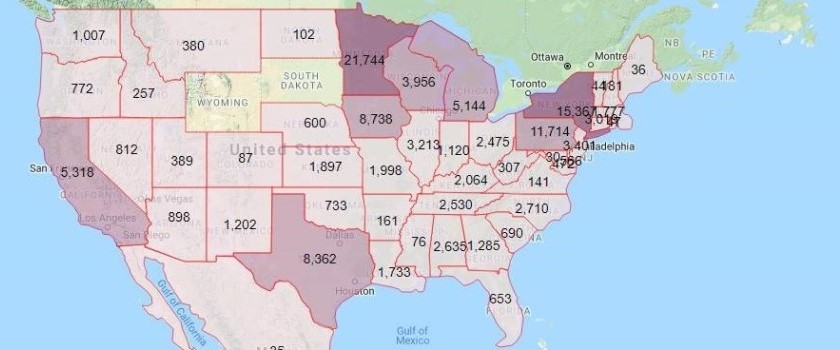Worker Training Program
-

The NIEHS Worker Training Program and its award recipients are actively involved in hurricane and flood response and cleanup activities in the United States. The resources on the Hurricanes & Floods Page are aimed at protecting the health and safety of those responding to the aftermath of a hurricane or a flood.
-

The NIEHS Worker Training Program (WTP) and its grant recipients have provided resources and training in support of wildfire response operations in the United States. The resources are available on the Wildfires page and are aimed at protecting the health and safety of those responding to wildfires.
-

The NIEHS Worker Training Program and its award recipients have provided resources and training in support earthquake response operations in the United States. The resources are available on the Earthquakes Page and are aimed at protecting the health and safety of those responding to earthquakes.
-

The NIEHS Worker Training Program (WTP) released a new resource for preventing heat stress in workers. The resource, titled Building Blocks for a Heat Stress Prevention Training Program, is now available on the new Extreme Heat & Weather Resilience webpage and can help identify and implement steps needed to reduce the risk of heat stress for workers in indoor and outdoor environments.
-

Stay safe, healthy, and injury-free during hurricane season with NIEHS Worker Training Program (WTP) resources. WTP offers training tools, fact sheets and booklets on hurricanes, floods, mold and debris clean-up.
-

Check out our training map to see the number of workers trained in each state under our various training program areas.
According to the U.S. Bureau of Labor Statistics, more than 60% of the nation's population makes up the U.S. workforce – approximately 200 million people. Occupational safety is one of the most crucial, yet generally understated, forms of public health.
The NIEHS Worker Training Program (WTP) provides occupational health and safety training for workers who face risk of exposure to physical, chemical, radiological, and biological hazards. Workers encounter these hazards when handling or cleaning up hazardous or biological waste; responding to emergency releases of hazardous materials; or responding to natural or manmade disasters. Depending on the nature of their work, some workers also face psychological stressors that impact their mental health and well-being.
WTP uses current, evidence-based science when assessing the broad range of risks that workers face. In doing so, WTP aims to provide the most accurate, updated information to protect the health of workers, as well as their colleagues, families, and communities.
To receive news and updates on worker safety issues, subscribe to the weekly E-Newsbrief which is maintained by WTP's National Clearinghouse for Worker Safety and Health Training.








